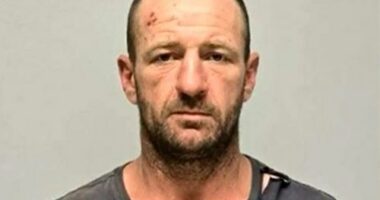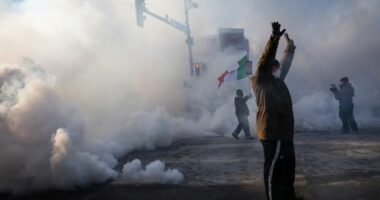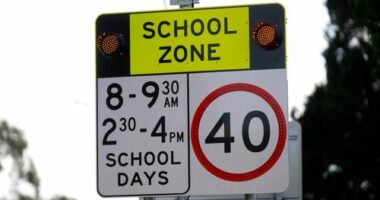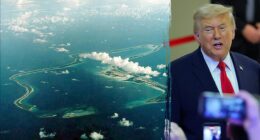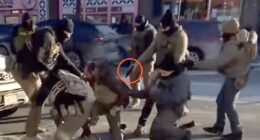Share this @internewscast.com
The Supreme Court currently comprises a 6-3 conservative majority.
In a session that extended over two and a half hours, justices probed the legality of Trump’s use of a 1977 statute to enforce tariffs indefinitely, questioning if such significant executive actions necessitate explicit authorization from Congress.
Trump has mounted pressure on the Supreme Court, urging it to uphold tariffs which he considers pivotal to his economic and foreign policy strategies.
Utilizing the International Emergency Economic Powers Act (IEEPA), Trump applied tariffs affecting almost all of the United States’ trading partners.
Typically, the Supreme Court deliberates for several months before delivering decisions, but the Trump administration has requested an expedited ruling in this matter, leaving the decision’s timeline uncertain. Source: AAP / Kent Nishimura / POOL / EPA
Under IEEPA, the president is empowered to address “an unusual and extraordinary threat” during a national emergency.

While the US Supreme Court typically takes months to issue rulings after hearing arguments, the Trump administration has asked it to act swiftly in this case, though the timing of the decision remains clear. Source: AAP / Kent Nishimura / POOL / EPA
IEEPA gives the president power to deal with “an unusual and extraordinary threat” amid a national emergency.
Sauer said Trump determined that US trade deficits have brought the nation to the brink of an economic and national security catastrophe.
But what does the law say?
“Can you point to any other place in the code or any other time in history where that phrase together ‘regulate importation’ has been used to confer tariff imposing authority?” Barrett asked.
Trump is the first president to use IEEPA to impose tariffs, one of the many ways he has aggressively pushed the boundaries of executive authority since he returned to office in areas as varied as his crackdown on immigration, the firing of federal agency officials and domestic military deployments.
Does the court have power over Trump?
Liberal justice Elena Kagan pressed Sauer about his claim that Trump’s tariffs are supported by the president’s inherent powers under the constitution.


